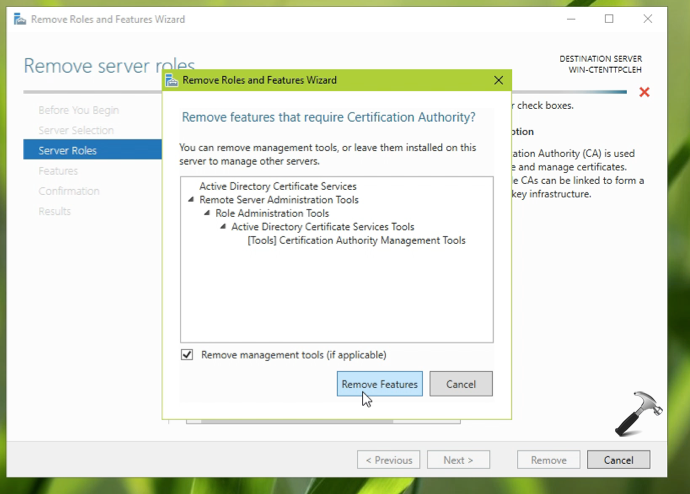
- #Tortoisehg ssl server certificate verify failed upgrade#
- #Tortoisehg ssl server certificate verify failed full#
- #Tortoisehg ssl server certificate verify failed password#
- #Tortoisehg ssl server certificate verify failed plus#
I checked the fingerprints of each individual certificate in Path #1 to confirm their identity: # openssl x509 -in 1_wildcard_server.crt -noout -sha256 -fingerprint

rw- 1 postgres postgres 2094 Aug 15 00:27 3_root_usertrust-selfsigned.crt rw- 1 postgres postgres 2167 Aug 15 00:27 2_intermediate_sectigo.crt rw- 1 postgres postgres 2313 Aug 15 00:26 1_wildcard_server.crt Instead, clients must have the root certificate of the server'sĪssembling and verifying the certificate chain for Path #1 # ls -l It is not necessary to add the root certificate to server.crt. Doing this avoids the necessity of storing intermediateĬertificates on clients, assuming the root and intermediateĬertificates were created with v3_ca extensions. "intermediate" certificate authorities can also be appended to theįile. The first certificate in server.crt must be the server's certificateīecause it must match the server's private key. I checked the certification paths via ssltest and found that there are two paths available ( Path #1 and Path #2):įrom the documentation on PostgreSQL 9.6 Secure TCP/IP Connections with SSL:
#Tortoisehg ssl server certificate verify failed password#
Hostssl all all 34.84.31.82/32 password # remote host I don't want to require client certificates, only encryption with a required password. This file was set up to allow only the public IP address of the localhost and the remote host I am testing. #ssl_crl_file = 'root.crl' # commented out - no client certificates #ssl_ca_file = 'root.crt' # commented out - do not require client certs Ssl_key_file = 'server.key' # private key
#Tortoisehg ssl server certificate verify failed plus#
Ssl_cert_file = 'server.crt' # wildcard cert plus intermediate certs Since there was no difference in client behavior, I commented out ssl_ciphers and ssl_prefer_server_ciphers to allow the defaults. I had tried to limit the set of ciphers to attempt to force TLSv1.2 for all SSL connections. What have I missed that could be causing these remote connections to fail?Īs user postgres: # cd /var/lib/pgsql96/data I must have missed something, since I'm unable to connect remotely via psql or JDBC.

#Tortoisehg ssl server certificate verify failed full#
Starting from the server key (which hasn't changed since I had remote access working), I have attempted to cover the full series of steps to verify that I have my keys, certificates, firewall and database set up correctly. My goal is to be able to connect to this PostgreSQL database remotely via psql and also via JDBC.
#Tortoisehg ssl server certificate verify failed upgrade#
After a recent certificate upgrade (Comodo, now Sectigo), I can no longer establish remote psql or JDBC connections to this database over SSL. Also in some area its shows SSL issues.I have a PostgreSQL 9.6.11 database on Amazon Linux that has been configured with a 2048-bit SSL wildcard server certificate and password-based (no client certificates) remote connections since January 2012. I was using this command for many months, but now it start giving error. output of certbot -version or certbot-auto -version if you're using Certbot): certbot 0.28.0 I'm using a control panel to manage my site (no, or provide the name and version of the control panel): I can login to a root shell on my machine (yes or no, or I don't know): Yes My hosting provider, if applicable, is: Linode The operating system my web server runs on is (include version): Ubuntu 16.04 etc/letsencrypt/live//fullchain.pem (failure) The following certs could not be renewed: Starting new HTTPS connection (1): Īttempting to renew cert () from /etc/letsencrypt/renewal/ produced an unexpected error: certificate verify failed (_ssl.c:645). Plugins selected: Authenticator nginx, Installer nginx Processing /etc/letsencrypt/renewal/Ĭert is due for renewal, auto-renewing. It produced this output: Saving debug log to /var/log/letsencrypt/letsencrypt.log I ran this command: sudo certbot renew -nginx crt.sh | ), so withholding your domain name here does not increase secrecy, but only makes it harder for us to provide help.

Domain names for issued certificates are all made public in Certificate Transparency logs (e.g. Note: you must provide your domain name to get help. Please fill out the fields below so we can help you better.


 0 kommentar(er)
0 kommentar(er)
